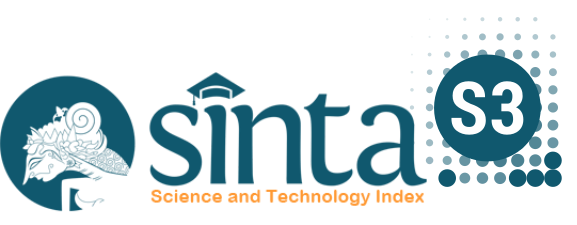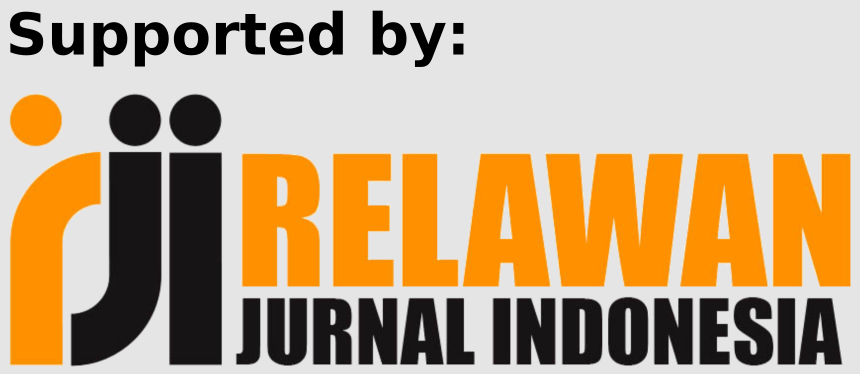The new generation of "Ruang Sehati” portable lactation pod as a part of wellness tourism in Yogyakarta City: A design thinking method
DOI:
https://doi.org/10.31101/jhtam.3610Abstract views 579 times
Keywords:
design thinking method, lactation pod, ruang sehati, wellness tourismAbstract
Downloads
References
Abekah-Nkrumah, G., Antwi, M. Y., Nkrumah, J., & Gbagbo, F. Y. (2020). Examining working mothers’ experience of exclusive breastfeeding in Ghana. International Breastfeeding Journal, 15(56). https://doi.org/10.1186/s13006-020-00300-0
Basrowi, Sastroasmoro, Sulistomo, Bardosono, Hendarto, Soemarko, Sungkar, Khoe, & Vandenplas. (2018). Challenges and Supports of Breastfeeding at Workplace in Indonesia. Pediatric Gastroenterology, Hepatology & Nutrition, 21(4), 248. https://doi.org/10.5223/pghn.2018.21.4.248
Bosch, Den, V., & Sang. (2017). Urban natural environments as nature-based solutions for improved public health - A systematic review of reviews. Environ Res., 15(8), 373–384. https://doi.org/10.1016/j.envres.2017.05.040
Chen, Q., Qiu, X., Fu, A., & Han, Y. (2022). Effect of Prenatal Perineal Massage on Postpartum Perineal Injury and Postpartum Complications: A Meta-Analysis. Computational and Mathematical Methods in Medicine, 2022. https://doi.org/10.1155/2022/3315638
Coomson, J. B., & Aryeetey, R. (2018). Perception and practice of breastfeeding in public in an urban community in Accra, Ghana. International Breastfeeding Journal, 13(18). https://doi.org/10.1186/s13006-018-0161-1
Dellen, S. A. van, Wisse, B., Mobach, M. P., Albers, C. J., & Dijkstra, A. (2020). A cross-sectional study of lactation room quality and Dutch working mothers’ satisfaction, perceived ease of, and perceived support for breast milk expression at work. International Breastfeeding Journal, 16(67), 1–13. https://doi.org/10.1186/s13006-021-00415-y
Dewey KG. (2016). Reducing stunting by improving maternal, infant, and young child nutrition in regions such as South Asia: evidence, challenges, and opportunities. Maternal and Child Nutrition, 12(Suppl.1), 27–38.
Fotiou, C., Siahanidou, T., Vlastarakos, P. V., Tavoulari, E. F., & Chrousos, G. (2018). The effect of body and mind stress-releasing techniques on the breastfeeding of full-term babies; a critical analysis of published interventional studies. The Journal of Maternal-Fetal & Neonatal Medicine, 31(1), 98–105. https://doi.org/10.1080/14767058.2016.1275547
Grant, A., Pell, B., Copeland, L., Brown, A., Ellis, R., Morris, D., Williams, D., & Phillips, R. (2022). Views and experience of breastfeeding in public: A qualitative systematic review. Maternal & Child Nutrition, 18, e13407. https://doi.org/10.1111/mcn.13407
Hendaus, M. A., Alhammadi, A. H., Khan, S., Osman, S., & Hamad, A. (2018). Breastfeeding rates and barriers: a report from the State of Qatar. International Journal of Women’s Health, Volume 10, 467–475. https://doi.org/10.2147/IJWH.S161003
Hunegnaw, Gezie, & Teferra. (2017). Exclusive breastfeeding and associated factors among mothers in Gozamin district, northwest Ethiopia: A community based cross-sectional study. International Breastfeeding Journal, 12(1), 30. https://doi.org/10.1186/s13006-017-0121-1
Indonesian Ministry of Health. (2013). Regulation of the Minister of Health of the Republic of Indonesia Number 15 of 2013 Concerning Procedures for Providing Special Facilities for Breastfeeding and/or Expressing Breast Milk.
Iyendo, T. O., Uwajeh, P. C., & Ikenna, E. S. (2016). The therapeutic impacts of environmental design interventions on wellness in clinical settings: A narrative review. Complementary Therapies in Clinical Practice, 24, 174–188. https://doi.org/10.1016/j.ctcp.2016.06.008
J.E. Dodgson. (2019). Reflexivity In Qualitative Research. Journal Human Lactation, 35(2). https://doi.org/https://doi.org/10.1177/0890334419830990
Kemppainen, L., Koskinen, V., Bergroth, H., Marttila, E., & Kemppainen, T. (2021). Health and Wellness–Related Travel: A Scoping Study of the Literature in 2010-2018. Sage Open, 11(2). https://doi.org/10.1177/21582440211013792
Krolikowski, K. A., Bi, M., Baggott, C. M., Khorzad, R., Holl, J. L., & Kruser, J. M. (2022). Design thinking to improve healthcare delivery in the intensive care unit: Promise, pitfalls, and lessons learned. J Crit Care, 69, 153999. https://doi.org/10.1016/j.jcrc.2022.153999
Kyu, H. H., Abate, D., Abate, K. H., Abay, S. M., Abbafati, C., Abbasi, N., Abbastabar, H., Abd-Allah, F., Abdela, J., Abdelalim, A., Abdollahpour, I., Abdulkader, R. S., Abebe, M., Abebe, Z., Abil, O. Z., Aboyans, V., Abrham, A. R., Abu-Raddad, L. J., Abu-Rmeileh, N. M. E., … Murray, C. J. L. (2018). Global, regional, and national disability-adjusted life-years (DALYs) for 359 diseases and injuries and healthy life expectancy (HALE) for 195 countries and territories, 1990–2017: a systematic analysis for the Global Burden of Disease Study 2017. The Lancet, 392(10159), 1859–1922. https://doi.org/10.1016/S0140-6736(18)32335-3
Lee, J. S., Ganzert, A., & Jackson, C. (2019). The traveling mother: Navigating, visualizing and utilizing lactation spaces in U.S. airports. Building and Environment, 164(February), 106323. https://doi.org/10.1016/j.buildenv.2019.106323
Liao, C., Zuo, Y., Xu, S., Law, R., & Zhang, M. (2023). Dimensions of the health benefits of wellness tourism: A review. Front Psychol, 13, 1071578. https://doi.org/10.3389/fpsyg.2022.1071578
Maonga, A. R., Mahande, M. J., Damian, D. J., & Msuya, S. E. (2016). Factors Affecting Exclusive Breastfeeding among Women in Muheza District Tanga Northeastern Tanzania: A Mixed Method Community Based Study. Maternal Child Health Journal, 20(1), 77–87. https://doi.org/10.1007/s10995-015-1805-z
Mueller-Roterberg, C. (2018). Handbook of Design Thinking: Tips & Tools for how to design thinking. Kindle Direct Publishing.
Okinarum, G. Y., Vidayanti, V., & Mulyani, S. H. (2024a). Ruang Sehati: Innovating Portable Lactation Pods for Wellness Tourism Using Design Thinking Method in Yogyakarta. Global Medical and Health Communication, 12(1), 69–75. https://doi.org/10.29313/gmhc.v12i1.12691
Okinarum, G. Y., Vidayanti, V., & Mulyani, S. H. (2024b). Why is the lactation pod essential? a “Ruang Sehati” innovation pilot project for wellness tourism in Yogyakarta, Indonesia. Media Keperawatan Indonesia, 7(1), 22–30. https://doi.org/10.26714/mki.7.1.2024.22-30
Putri, A. T., Ivone, J., & Hasianna, S. T. (2020). Working Mothers and Successful Exclusive Breast Milk Provision; An Observational Study in Hermina Bogor Public Hospital. Journal of Medicine and Health, 2(6), 166–172.
Ratnasari, D., Astria, B., Mph, P., & Scd, H. H. (2017). Family support and exclusive breastfeeding among Yogyakarta mothers in employment. June. https://doi.org/10.6133/apjcn.062017.s8
Rose, & Johnson. (2020). Contextualizing reliability and validity in qualitative research: toward more rigorous and trustworthy qualitative social science in leisure research. Journal of Leisure Research, 51(4), 432–451. https://doi.org/10.1080/00222216.2020.1722042
Sağlam, H. Y., Reyhan, F. A., & Dağlı, E. (2024). What Should a Breastfeeding Place in Public Spaces Be Like? A Qualitative Study on Women’s Experiences. HERD: Health Environments Research & Design Journal, 17(3), 97–110. https://doi.org/10.1177/19375867241237508
Souza, Santos, D., Santos, da C., & Silva, D. (2021). Effectiveness of mobile applications in pregnant women’s adherence to prenatal consultations: randomized clinical trial. Revista Brasileira de Enfermagem,. 74(5), 1–8. https://doi.org/10.1590/0034-7167-2019-0599
Stahl, N. A., & King, J. R. (2020). Expanding Approaches for Research: Understanding and Using Trustworthiness in Qualitative Research. Journal of Developmental Education, 44(1), 26–28.
Susiloretni, K. A., Hadi, H., Prabandari, Y. S., Soenarto, Y. S., & Wilopo, S. A. (2015). What works to improve duration of exclusive breastfeeding: lessons from the exclusive breastfeeding promotion program in rural Indonesia. Matern Child Health J, 19(7), 1515–1525. https://doi.org/10.1007/s10995-014-1656-z.
Ulrich, Cordoza, Gardiner, Manulik, Fitzpatrick, Hazen, & Perkins. (2020a). ICU Patient Family Stress Recovery During Breaks in a Hospital Garden and Indoor Environments. HERD: Health Environments Research & Design Journal, 13(2), 83–102. https://doi.org/10.1177/1937586719867157
Ulrich, R. S., Cordoza, M., Gardiner, S. K., Manulik, B. J., Fitzpatrick, P. S., Hazen, T. M., & Perkins, R. S. (2020b). ICU Patient Family Stress Recovery During Breaks in a Hospital Garden and Indoor Environments. HERD: Health Environments Research & Design Journal, 13(2), 83–102. https://doi.org/10.1177/1937586719867157
Wayne, & Russell. (2020). Analysis of the Global and Asian Wellness Tourism Sector. In Asian Development Bank.
Wong, G., & Breheny, M. (2018). Narrative analysis in health psychology: a guide for analysis. Health Psychol Behav Med, 6(1), 245–261. https://doi.org/10.1080/21642850.2018.1515017.
Wong, L.-P., Lee, H.-Y., Alias, H., & AbuBakar, S. (2022). Malaysian Parents’ Willingness to Vaccinate Their Children against COVID-19 Infection and Their Perception of mRNA COVID-19 Vaccines. Vaccines, 10(11), 1790. https://doi.org/10.3390/vaccines10111790
Yang, Y., Deng, H., Li, T., Xia, M., Liu, C., Bu, X.-Q., Li, H., Fu, L.-J., & Zhong, Z.-H. (2021). The mental health of Chinese women with polycystic ovary syndrome is related to sleep disorders, not disease status. Journal of Affective Disorders, 282, 51–57.
Downloads
Published
How to Cite
Issue
Section
License
Copyright (c) 2024 Giyawati Yulilania Okinarum

This work is licensed under a Creative Commons Attribution-ShareAlike 4.0 International License.
Authors who publish with Journal of Health Technology Assessment in Midwifery agree to the following terms:
- Authors retain copyright and grant the journal right of first publication with the work simultaneously licensed under a Creative Commons Attribution License (CC BY-SA 4.0) that allows others to share the work with an acknowledgment of the work's authorship and initial publication in this journal.
- Authors are able to enter into separate, additional contractual arrangements for the non-exclusive distribution of the journal's published version of the work (e.g., post it to an institutional repository or publish it in a book), with an acknowledgment of its initial publication in this journal.
- Authors are permitted and encouraged to post their work online (e.g., in institutional repositories or on their website) prior to and during the submission process, as it can lead to productive exchanges, as well as earlier and greater citation of published work.

Journal of Health Technology Assessment in Midwifery is licensed under a Creative Commons Attribution-ShareAlike 4.0 International License..













